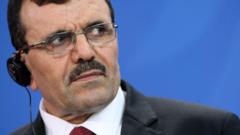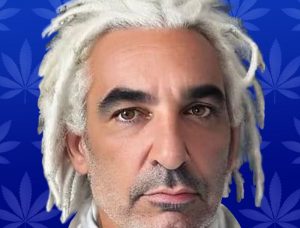In a troubling turn for Tunisia's democracy, a court sentenced approximately 40 opposition figures to prison terms of up to 66 years, leading to increased fears of a return to oppressive governance under President Kais Saied.
Tunisia Faces International Outcry Over Heavy Sentences for Opposition Leaders

Tunisia Faces International Outcry Over Heavy Sentences for Opposition Leaders
A court in Tunisia issued lengthy prison terms for opposition figures amid rising authoritarianism under President Kais Saied.
In a striking signal of Tunisia’s retreat from democracy, a court has sentenced around 40 individuals, including noted opposition leaders, to prison terms ranging from 13 to 66 years. The charges, encompassing conspiracy against state security, have drawn significant condemnation from rights groups, who label the accusations as unfounded.
The court's decision, reported by the official news agency TAP, illustrates the severe political repression that has consolidated under President Kais Saied. Since Saied's assumption of power in a controversial move in 2021, the nation has witnessed an alarming drift toward authoritarianism, undermining the democratic achievements made post-Arab Spring.
Tunisia was once lauded as a beacon of democratic progress in the Arab world, fostering free elections, a vibrant media landscape, and a citizenry empowered to voice grievances. Despite these advancements, the country has grappled with economic stagnation, public discontent over political inequality, and the pervasive influence of political Islamists, leading some Tunisians to initially support Saied’s promises for reform.
However, nearly four years later, disillusionment has set in as many citizens perceive that Saied's governance has only compounded the economic downturn and intensified authoritarianism. The opposition’s diminishing influence is apparent, as journalists, activists, and lawyers report widespread censorship and government control of the judiciary.
Fears of punitive repercussions for dissenting voices have risen, with the Saied administration centralizing power over crucial governmental bodies, including election oversight. This escalating clampdown on civil liberties raises pressing concerns about Tunisia's political future and the potential unraveling of its democratic fabric.



















